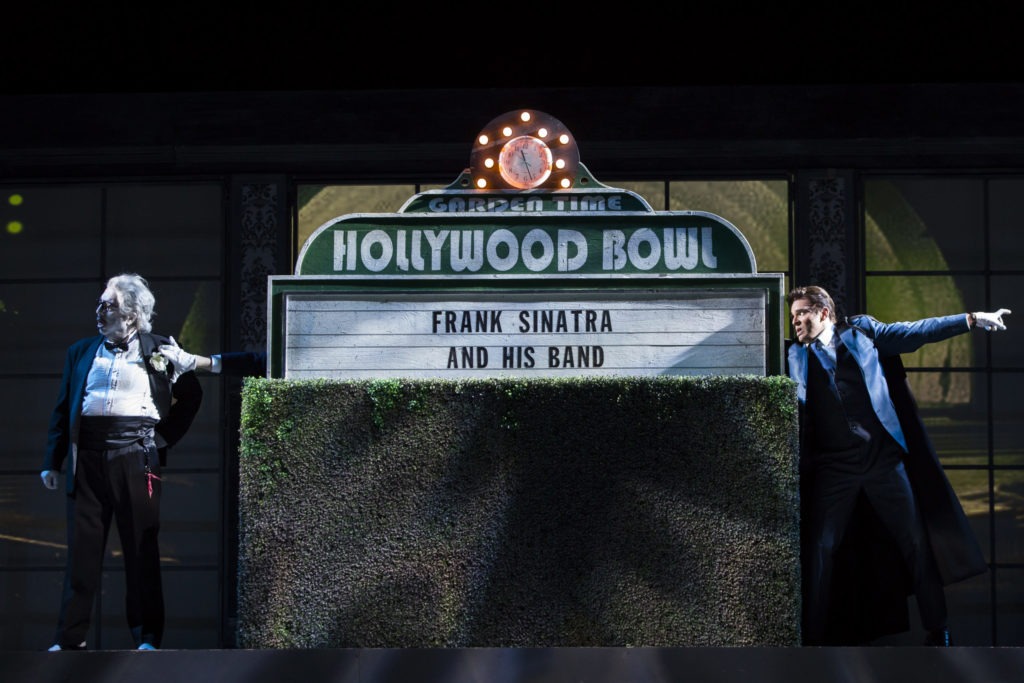Review Quotations
The Atlanta Opera smartly transforms Donizetti’s comedy classic “Don Pasquale”...Although this is Atlanta Opera’s first foray with the vocally challenging bel canto comedy, this production is hardly a traditional period approach. Instead of being set in the aristocratic social milieu of early 19th-century Rome, Italy, stage director Chuck Hudson and his creative crew have placed the story in 1950s Hollywood, the “golden age” of motion pictures...The chorus is ingeniously used in a party scene to portray iconic Hollywood figures from the 1950s. One of the questions that has to be asked when an opera is “modernized” in this manner is: does it add something of value? In this case, it does.
-Mark Gresham, ARTS ATL
Atlanta Opera’s ‘Don Pasquale’ is fresh, fun and lively A fresh, colorful, lively and funny show that could easily melt the heart of even the most staunch traditionalist...
Director Chuck Hudson created his inventive staging for “Don Pasquale” for the Arizona Opera in 2014 and also directed his Hollywood-set “Don Pasquale” at the Cincinnati Opera in 2015...During the entr’acte orchestral moments, we see black-and-white montage film clips from Pasquale’s career; it’s one of the most playfully silly and charming elements of the production...
Touches of physical comedy, which are often hard to pull off in opera because the emphasis is placed so resolutely on the sound world, are surprisingly well executed and effective here...
What’s best about Hudson’s conception for the show is its consistency. Opera directors often seek to update or change the setting or time of a classic work, but many times, this only succeeds in patches…Here, the new concept is sustained across characters, settings and acts...“Don Pasquale” is a surefire hit.
- Andrew Alexander, The Atlanta Journal-Constitution
Hudson says he saw the opera’s title character as very much in line with the character of Norma Desmond from Billy Wilder’s 1950 Hollywood classic film noir “Sunset Boulevard,” as they’re both over-the-top personalities who long to rekindle their youth and former glory. In Hudson’s production, Don Pasquale becomes an aging silent film star whose career has petered out in the era of sound and color. Act 1 is entirely in black and white, just as Pasquale’s early movies were, and then little by little, elements of color enter the scenography until the stage becomes full-blown Technicolor in Act 2.
-Andrew Alexander, Access Atlanta
